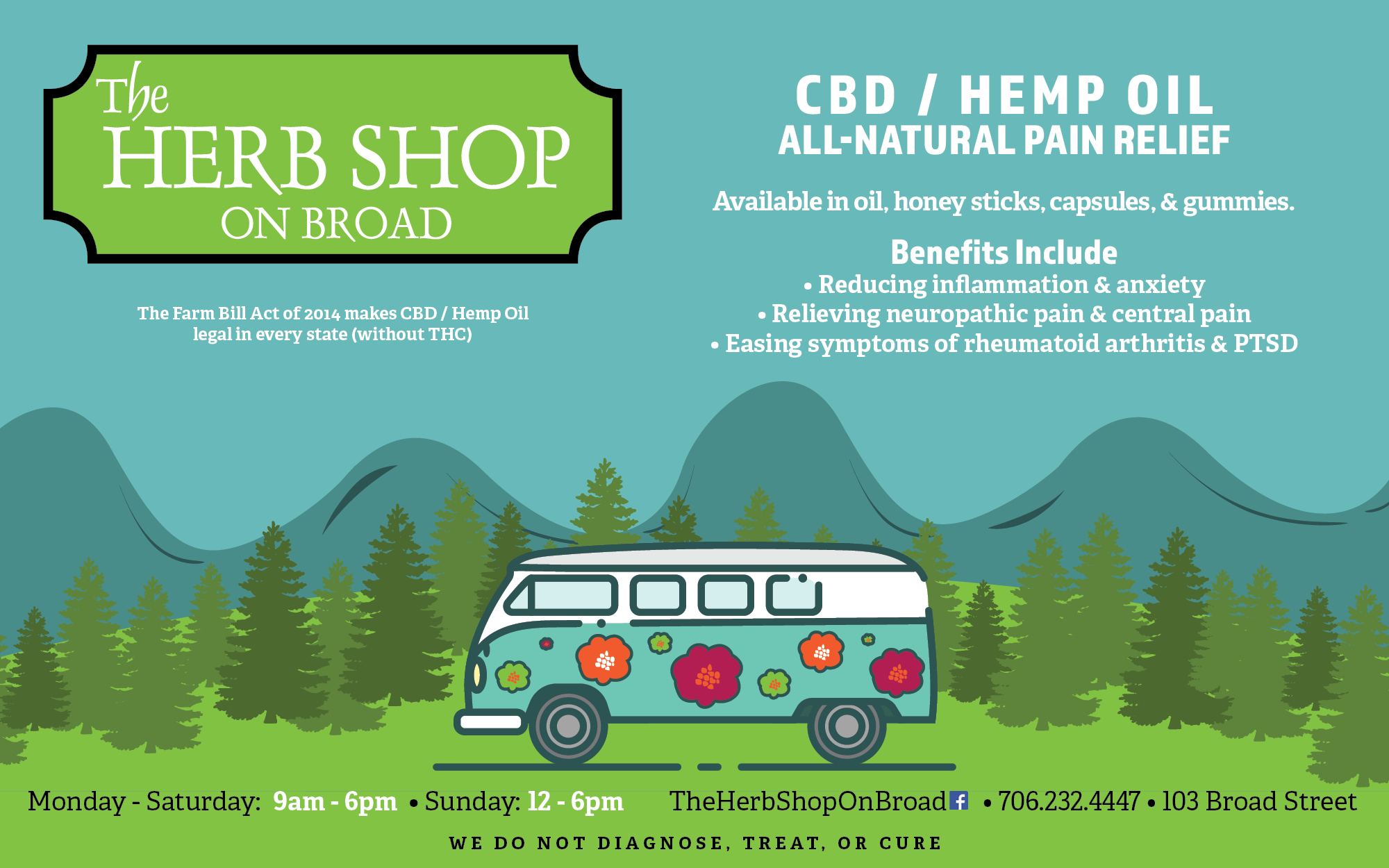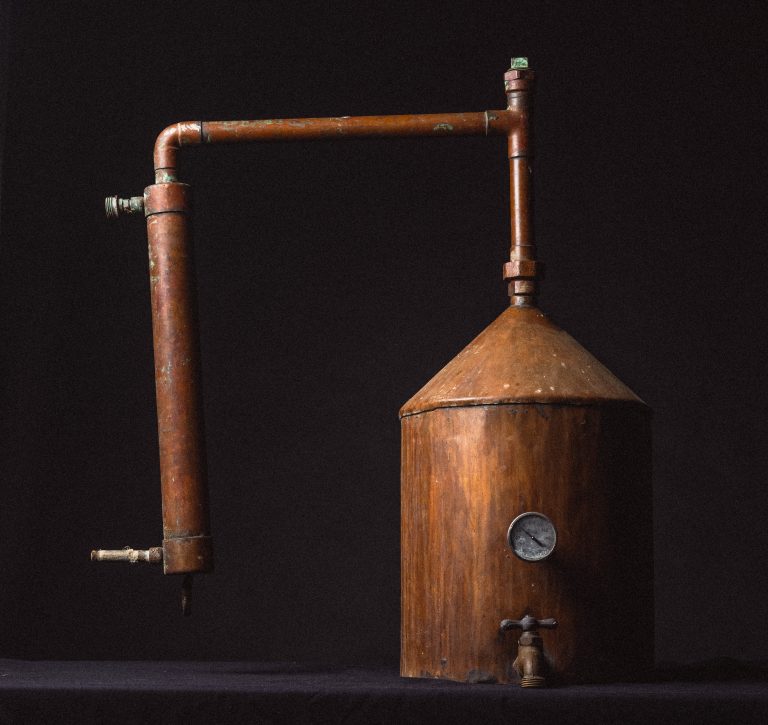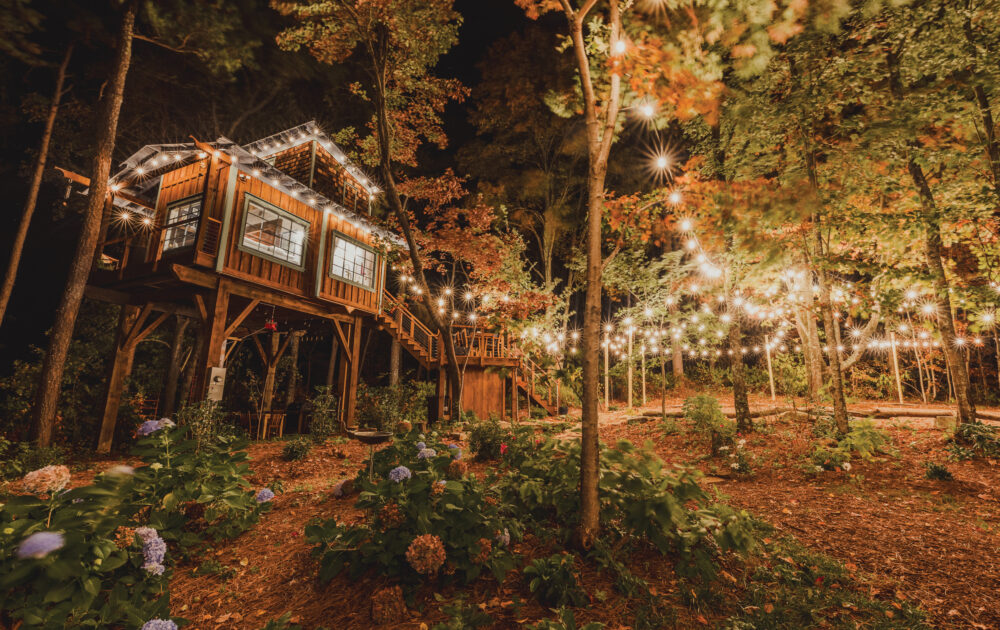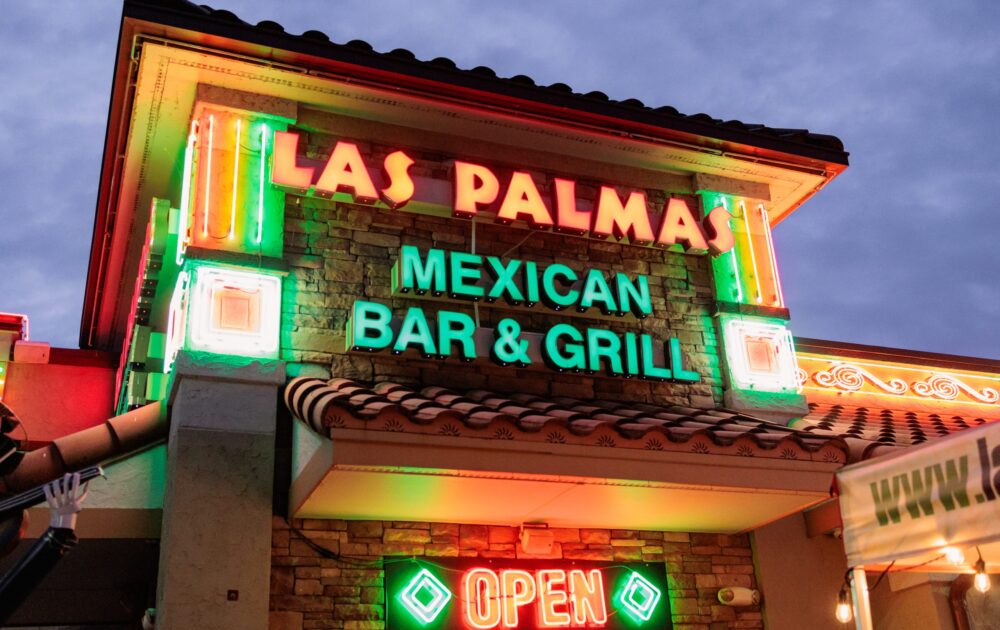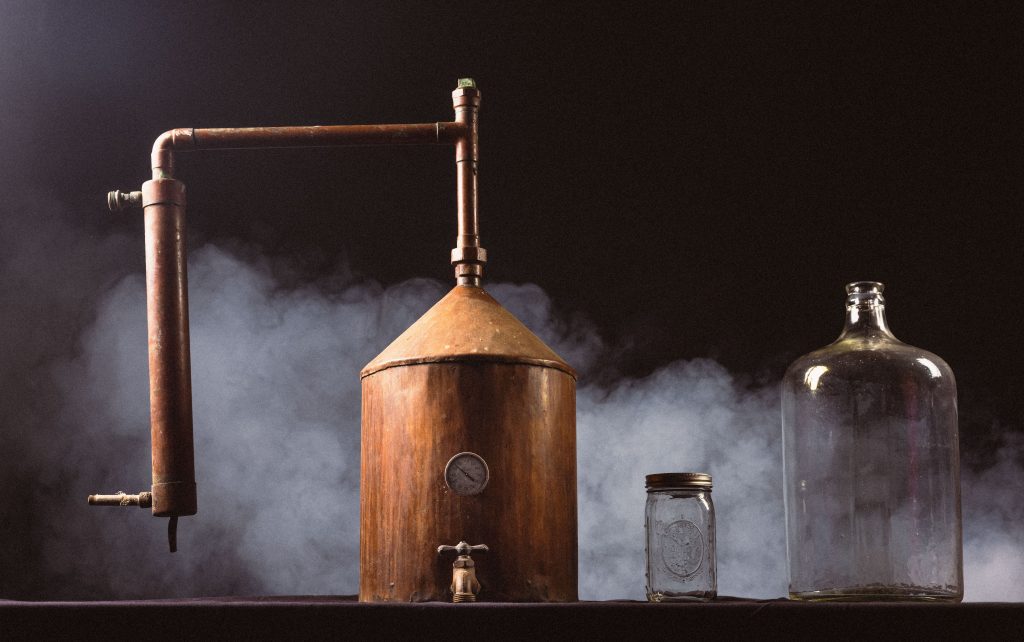
Photos Andy Calvert
The names have been changed to protect our saviors!
Skull Cracker, Tangleleg, Rotgut, Stagger soup: Any way you say it, good old-fashioned moonshine is bound to leave you feeling its effects. For centuries family secrets lay entwined in recipes, best methods, and tucked away hidey-holes. Firewater has a special way of passing through the generations in stories shared on the back porch: tales almost always too fantastic to believe. Sit a spell and take a sip.
Technically Speaking
While moonshine can mean different things depending on who is speaking, in technical terms it is any alcohol distilled illegally, wine, beer, and liquors alike. However, us southerners rarely attribute the term to illegal gin, vodka, or rum, but save the phrase moonshine to mean grain whiskey or fruit fermented brandy.
Essential Ingredients
1) Sugar-yielding organic material: grains (corn or barley) for whiskeys, fruits for brandies, and/or refined sugar or molasses.
2) Water
3) Yeast
4) Malt (if making grain whiskey)
In its earliest days, American moonshine was pure corn whiskey made from maize. During the colonial era, just about every native grain and fruit could be found distilled in the belly of a still. Nowadays, traditionalist home distillers are most likely to make moonshine purely from corn, water, yeast, and malt; with only wholesome grains and fresh fruit as they are more likely to drink their own white lightning than sell it.
Whiskey Grades
Regardless of region or recipe, there is a universal code by which all illegal whiskey is graded.
Sippin’ whiskey: a fine artisan spirit, subtle yet strong. Made of the finest ingredients with the utmost care; it is best enjoyed neat or with a splash of water.
Sellin’ whiskey: it’s terrible stuff that the distiller themselves likely won’t risk a taste. Full of second-grade ingredients and likely contamination; it is sold out of town so the moonshiner doesn’t risk looking their customers in the eye.
Spittin’ whiskey: spoiled and apt to make you blind; it is good for spitting into a bonfire for entertainment purposes only. Possibly it can also be used as a good paint removing solvent.
Bootlegger Legacy
The most dangerous part of moonshining was the trippers. Country boys who knew backroads, dirt roads, and side roads sped, swerved and maneuvered heavily modified cars ladened with liquor to stay ahead of federal agents and local police during their night runs. These “runners” needed sharp driving skills. Even before the end of prohibition in 1933, racing these “souped-up” cars became a popular pastime. Trippers raced each other’s car on makeshift dirt tracks, leading to the bootleggers’ roots of the stock car, and the eventual birth of the National Association for Stock Car Auto Racing (NASCAR) in 1947.
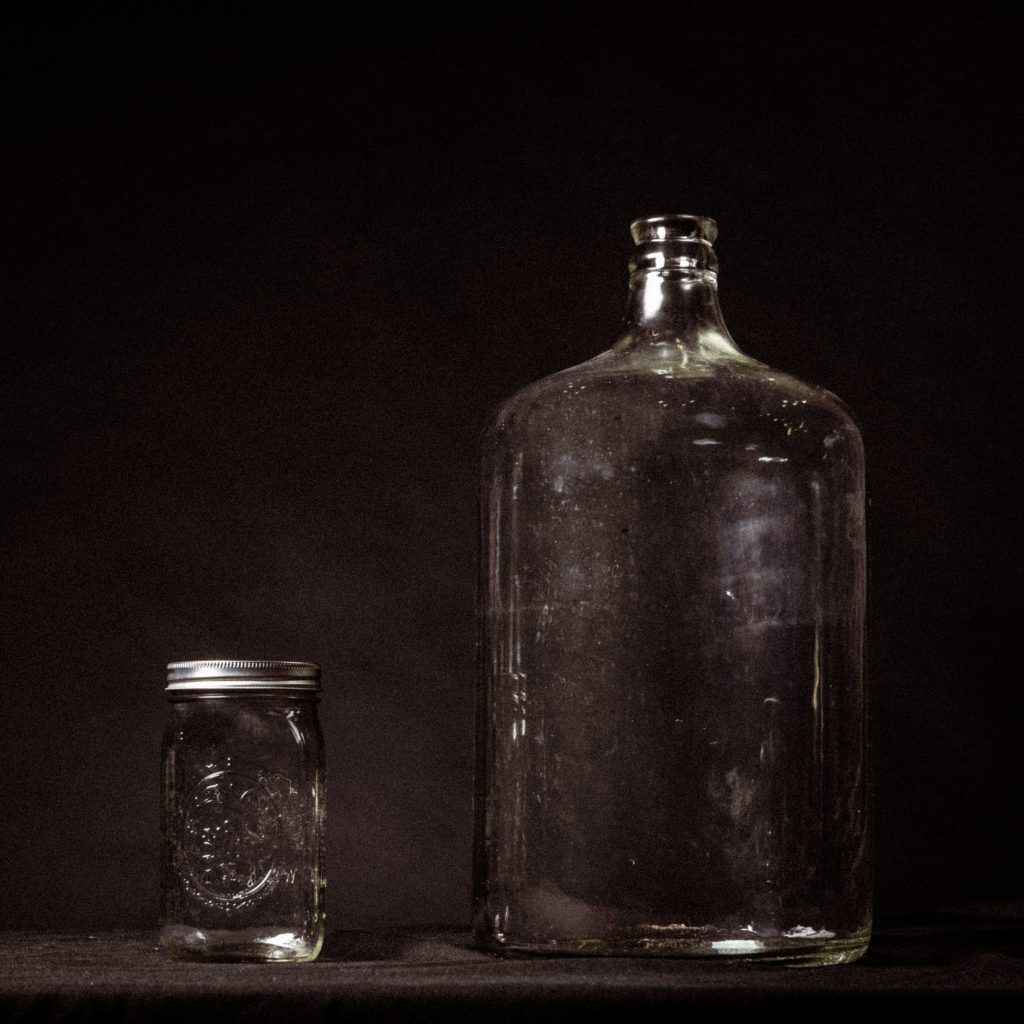
Stories
Codename Remus – Rome, GA
Rule number one, you have to soak your barrels, so the wood doesn’t drink up all your whiskey.
Knife in the Road – Esom Hill, GA
“People used to call moonshiners lazy. There was nothing lazy bout a man who had to tote all the sugar in and tote all the whiskey out. They never could go the same way, and risk making a trail. My people they would lay a knife down in the road, toward the still. If you went and saw the knife was gone, that meant you had to go and hit the road, we were being watched.”
Ask for More – Rome, GA
“There was a time, when there were no whiskey stores in Rome. Well, my youngest son had a doctor’s appointment in Atlanta. Before I walked out the door my husband calls out, ‘Don’t forget the whiskey!’ They had a two-bottle maximum in those days, and it never occurred to me to ask for more. So, I went to the whiskey store, and got two bottles. Then I went to another, for two bottles. As I returned to the car from the third store, and my six-year-old son says, ‘Mama, if you stop at another whiskey store, I’m gonna throw myself out on the street!’ I laughed about it all the way home, and even now sixty plus years later.”
A Panther in the Woods – Cleburne County, Alabama
“My uncle on my mama’s side was a big kingpin—ended up in jail—before he got right with God. I remember being about 13 years old and happenin’ on the still sites and seein’ big pots sittin’ on each side of the creek. They didn’t use the good copper pots you’d find over there in Esom Hill, or the aluminum with the radiator wire. Just old oak barrels with a flue running up the middle, and a thumper you could hear through the thick. My dad would take us up to my uncle’s every two weeks, but they told us boys—no matter what—to stay out of the woods, because there’s a panther down there. But we knew what was in the woods.”
Paint it Black – Rome, Georgia
“I had a beautiful ‘55 Ford my daddy bought for me. It was green and white—and fast. I was running some liquor up on past Darlington Way, when [the police] come up behind me. My daddy told my mama that morning on his way to work at the cotton mill that I’d be in jail before dark… (chuckling) and I made it. It was ole J.W. Scott. He was a cop here in Rome—who became warden down at the prison—well he pulled up behind me. I thought, ‘Well there ain’t no way they can catch this car.’ They wouldn’t have if they hadn’t blocked the road on Highway 27. I went to jail. My daddy came and paid the fine, got me out. I think he was madder about me bringing attention to the car than me running liquor. So that’s when I got me a black ‘55.”
More Stories
Smoke in the Hills – Floyd County, Georgia
“A long time ago, I worked with a young man at the old Coca-Cola plant. He would brag that he could run liquor better than anyone in Rome. See, they had a system. If he was planning a run in eastern Floyd County, his people would send someone to go light some fires in western Floyd County so all the revenuers (federal agents who sought to enforce liquor law) would see the smoke and run over there, looking for stills. Then he could run their whiskey on the east side of town without a care.”
Not Old Enough – W.F. Barron Jr., Rome, GA
During prohibition, teenagers had to be more creative to get a drink than they do now. I remember, when we wanted to have a good time, we would go see a man on Iron Street. You would drive up into his yard, turn your lights out, and wait in your car. After a bit, this man—I won’t give away his name—would come out and ask what you were looking for. We said, we wanted some whiskey. He looked me straight in the eye and said, ‘Well you’re not old enough to be a police officer—I don’t know if you look old enough to drink.’ After a little persuading he guessed he didn’t really care, and we left with what we came for.”
Whether you call it: shine, mountain dew, skull pop, or red-eye, its rebellious history and artisan revival makes a helluva drink!



